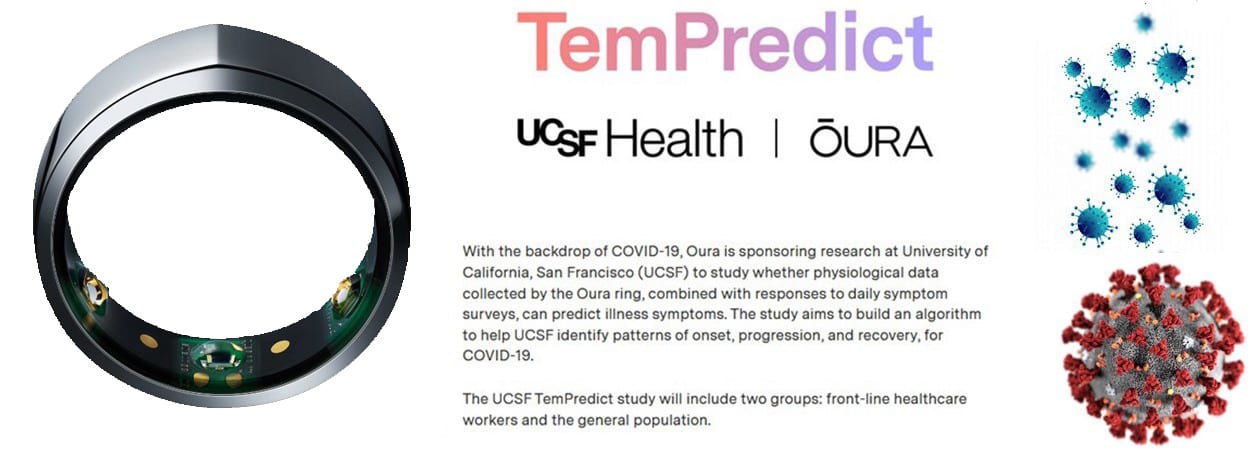Over the last dozen years, we’ve seen the rise of tech health gadgets. Whether it’s counting our steps, recording our calorie in-take, or recording our sleep patterns, technology is playing a larger role in how we perceive our health. This gamification of our physical fitness not only provides us with insight into our own health, but also may provide scientists with data that can play a larger role in scientific research studies.
I’m part of an interesting study that points the way to predicting who may be infectious for the next contagious disease, before those people even know it themselves.
The study is being undertaken by UCSF, in collaboration with Oura, a Finnish company that makes a sleep-tracking ring. (I have the ring; and thankfully, not the virus.) The idea of the study is to track the daily temperature of front-line healthcare workers and a second population of the general public, to see when changes in temperature statistically indicate the onset of the disease. (This study was covered in June issue of NeoScope Magazine here.)
To participate in the study, I (along with many others in the general population group) simply answer four questions every day, and those responses are included with daily bio-metric data and aggregated for the researchers. This data, using AI algorithms to tease out the patterns, can then be used to predict very early who has been exposed to the virus and will come down with it.
This study points a clear direction for medical science to deal with the next pandemic. Think about the number of people in the developed world who already use some sort of tech gadget to track their workouts (such as Apple watches, the exercise wrist devices, and all the phone apps). Now just think ahead, say, less than a decade, when the typical technology curve would suggest such devices can become cheaper, more standardized (open source data standards) and ubiquitous. Add a dose of AI deep learning algorithms to sift through the data. With those easy-to-imagine advances, the world can have in place the infrastructure to predict in real time who has just been infected, and those people can quarantine.
We can use our existing technology to shut down the next pandemic before it can get started. That’s the power of science: next time, to make it different. No, we need not repeat the nasty periods in human history endlessly. And that is the future we are building.
NOW A QUESTION FOR YOU: I mentioned that I use an Oura ring to track my sleep, and my jogging; what tech gadgets do you use? What do you like best? Please let me know and join the conversation. 😊
Be well and stay calm.

